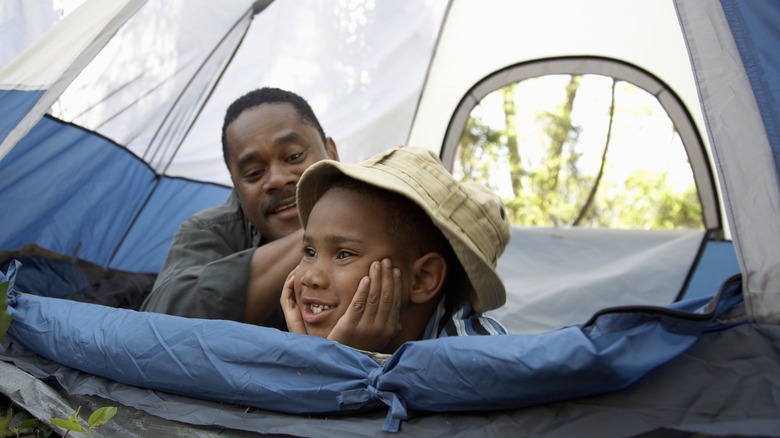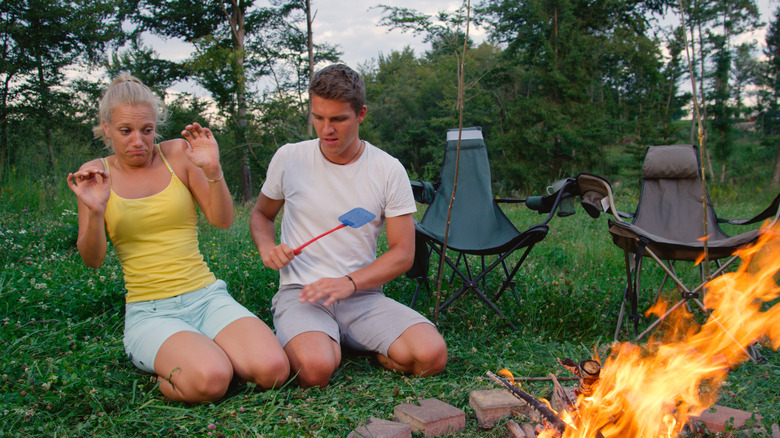Avoid These Dangerous Bug Spray Mistakes When Camping
A camping trip is often the highlight of summer. What's better than spending time with people you love, immersed in nature, away from the chaos of modern life? But nothing can ruin a camping trip faster than bugs, from pesky flies and biting ants to every camper's favorite — the bloodthirsty mosquito. And depending on where you are, insects are not only a nuisance but can also be downright dangerous.
If you're camping in parts of Europe, Canada, or the U.S., a bite from a black-legged tick can transmit Lyme disease, a severe illness that spreads to the joints, heart, and nervous system if left untreated. In regions closer to the equator, Anopheles mosquitoes carry malaria, which is deadly if not diagnosed and treated quickly. Because of this, most campers are familiar with a few hacks to keep bugs away from your campsite.
The good news is that many over-the-counter bug sprays effectively repel disease-carrying ticks and mosquitos. So by all means, invest in a good repellent before going camping, but be careful to avoid the following dangerous mistakes when spraying your campsite.
Avoid overusing bug spray
You'll want to avoid dousing all your belongings in insect repellent as soon as you arrive at your camping destination. Be sure to spray sparingly — remember, more isn't always better. Some sprays contain DEET or pyrethrins, which afford excellent levels of protection but may be toxic if inhaled in high quantities or ingested. Other sprays based on natural ingredients may not be as effective at repelling disease-carrying insects. Your choice of spray depends on where you're camping, what kinds of insects you're likely to encounter, and your general pest tolerance. You can use this convenient EPA search tool to choose one that best meets your needs.
Regardless of the kind of insect repellent you're using, it's best to discern what you spray, how much, and where. Lightly spray your clothes and any exposed skin, such as your hands, ankles, and neck, being careful to avoid your eyes. When spraying yourself and others, stand downwind from your campfire. Many bug sprays contain alcohol, which is flammable.
Don't spray your tent
Avoid over-spraying, and don't spray the outside or inside of your tent — at all — or you'll be inhaling chemical fumes while sleeping. Instead, set up your campsite before dusk, when insects are less active. After putting up your tent, fully zip all its windows and doors. Assuming your tent is completely zipped and without holes, it should remain free of the creepy crawlies and their flying cousins until you're ready to use it.
When your sleeping bag starts calling your name, unzip your tent and crawl inside, but don't let any enterprising mosquitos sneak in with you. This may require some quick thinking and a few torso twists (you get better at it with practice). Once safely inside, change into sleeping attire, and place all your sprayed clothing items in a tightly sealed bag, where you won't be able to smell them. Voila! Now you can breathe deeply in your pest-free nature home and let the crickets lull you to sleep. Some insects are more welcome than others when camping.


